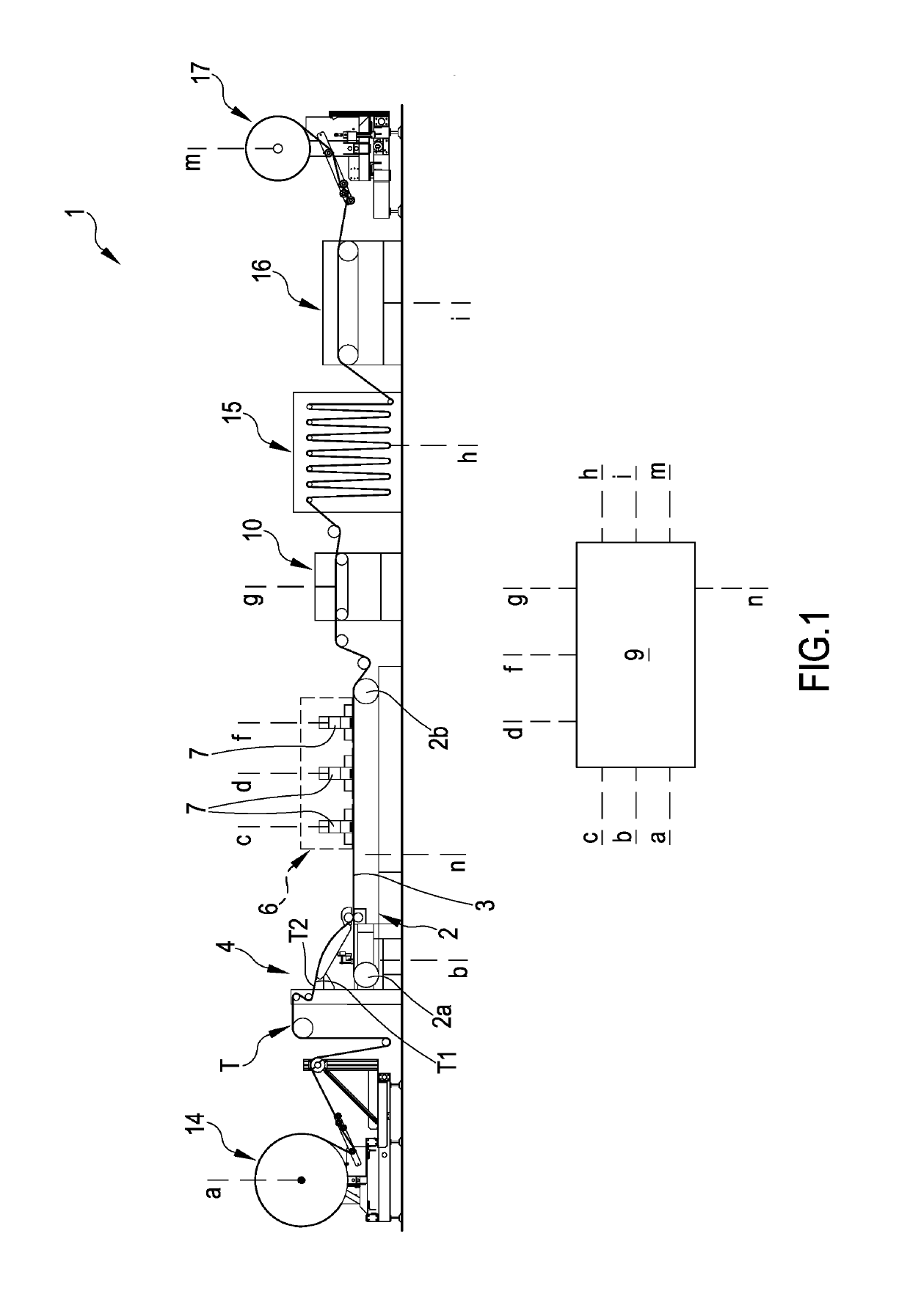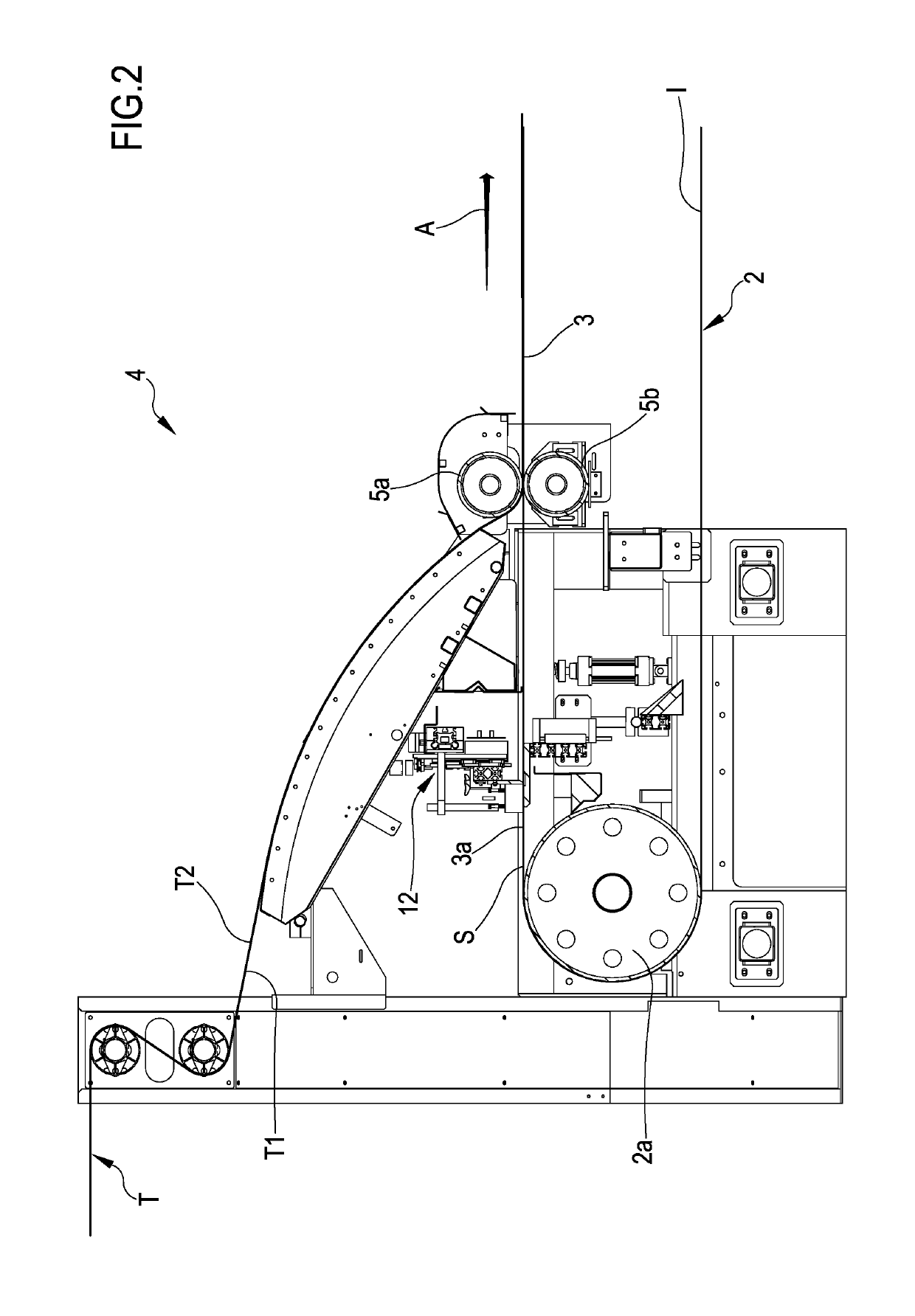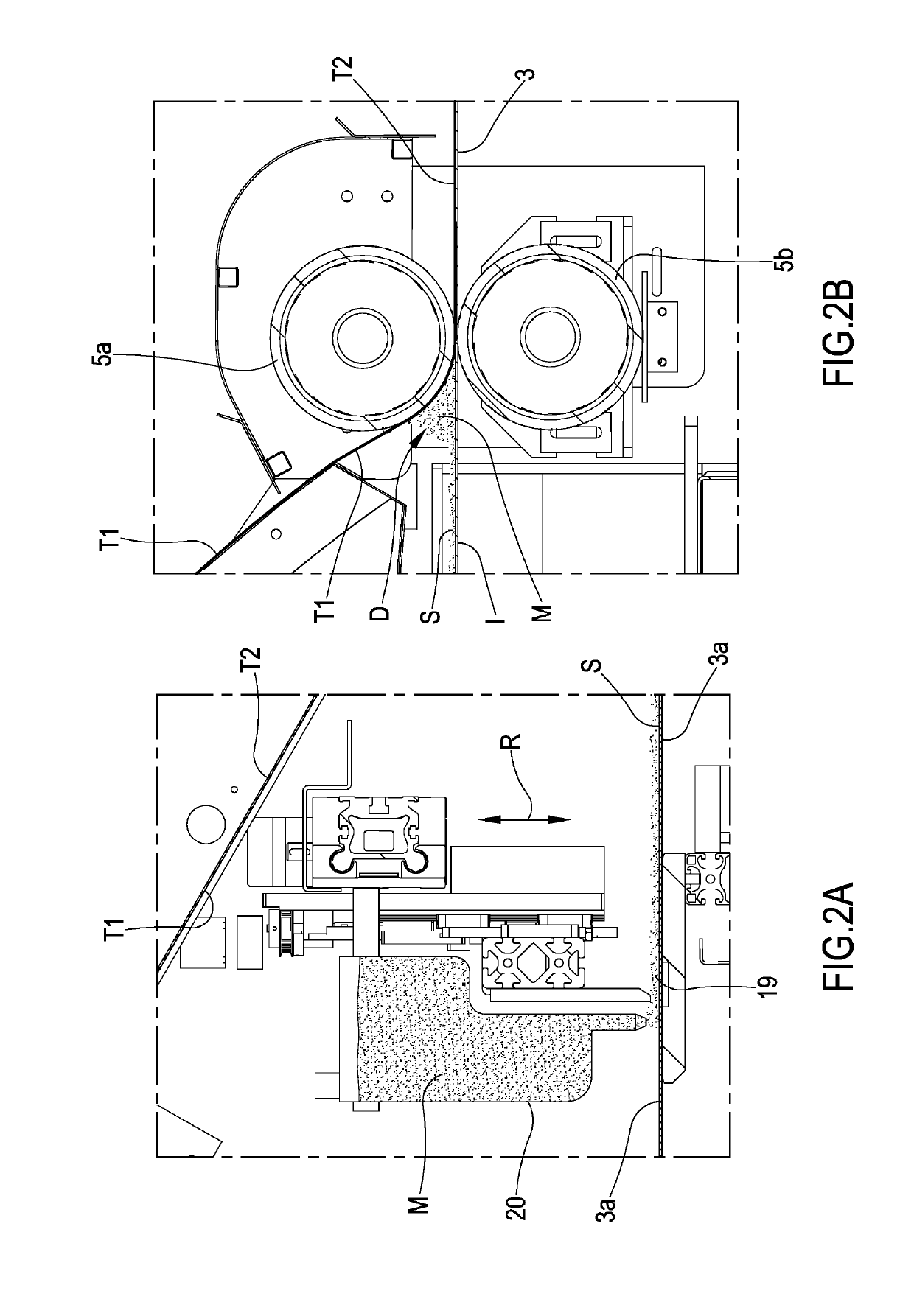Plant for printing a fibrous material and process of printing said fibrous material
a technology of printing plant and fibrous material, which is applied in the direction of dyeing process, printing, liquid/gas/vapor textile treatment, etc., can solve the problems of insufficient printing resolution, inability to immediately print, so as to achieve high printing resolution, rapid treatment of the material itself, and efficient treatment of fibrous materials
- Summary
- Abstract
- Description
- Claims
- Application Information
AI Technical Summary
Benefits of technology
Problems solved by technology
Method used
Image
Examples
Embodiment Construction
[0318]Printing Plant
[0319]1 generally indicates a plant for printing, particularly for digitally printing, a sheet fibrous material T, for example as a discrete sheet or as continuous web. The plant 1, object of the invention, is useable for ink-printing at least one side of said sheet fibrous material T which, for example, can be formed by or can comprise a fabric and / or non-woven fabric. Generally, but in a non limiting way, the plant 1 can be applied in the textile or knitted fabric or non-woven fabric industry for printing by ink.
[0320]As it is visible in the attached figures, the plant 1 comprises at least one conveyor belt 2 movable along a closed path, particularly between at least one first and one second end idler members 2a, 2b. The conveyor belt 2 exhibits a structure having two dimensions: length and width (the width is identified by the letter L as illustrated in FIG. 11), substantially prevalent with respect to a third dimension, such as the thickness; the length is de...
PUM
| Property | Measurement | Unit |
|---|---|---|
| thickness | aaaaa | aaaaa |
| thickness | aaaaa | aaaaa |
| speed | aaaaa | aaaaa |
Abstract
Description
Claims
Application Information
 Login to View More
Login to View More - R&D
- Intellectual Property
- Life Sciences
- Materials
- Tech Scout
- Unparalleled Data Quality
- Higher Quality Content
- 60% Fewer Hallucinations
Browse by: Latest US Patents, China's latest patents, Technical Efficacy Thesaurus, Application Domain, Technology Topic, Popular Technical Reports.
© 2025 PatSnap. All rights reserved.Legal|Privacy policy|Modern Slavery Act Transparency Statement|Sitemap|About US| Contact US: help@patsnap.com



